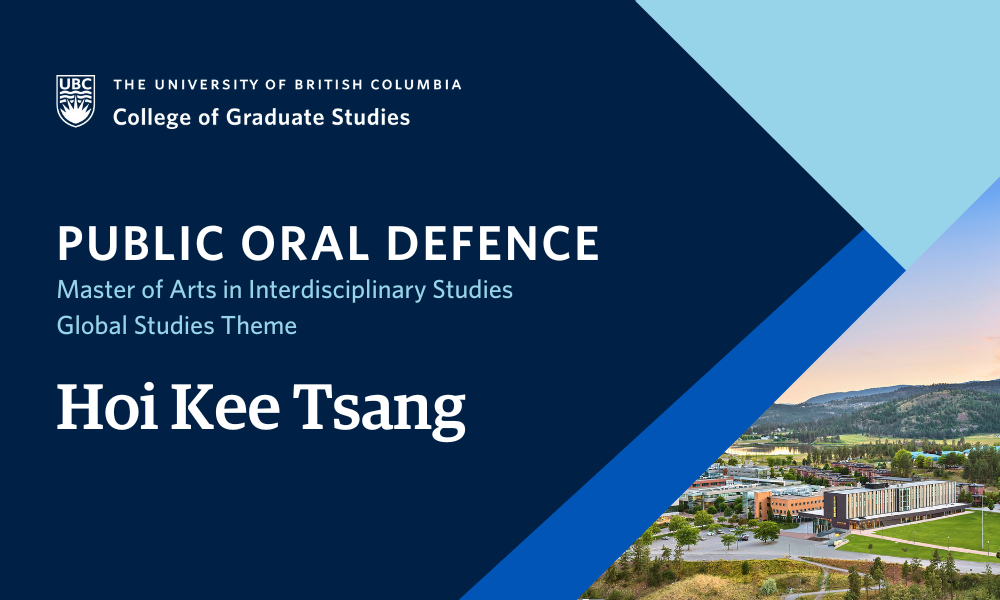
- This event has passed.
Thesis Defence: China’s Health Diplomacy and Soft Power Play in Chile and Argentina—A Cross-Country Comparison
March 22 at 11:00 am - 3:00 pm

Hoi Kee Tsang, supervised by Dr. Manfred Elfstrom, will defend their thesis titled “China’s Health Diplomacy and Soft Power Play in Chile and Argentina: A Cross-Country Comparison” in partial fulfillment of the requirements for the degree of Master of Arts in Interdisciplinary Studies – Global Studies Theme.
An abstract for Hoi Kee Tsang’s thesis is included below.
Defences are open to all members of the campus community as well as the general public. Registration is not required for in person defences.
ABSTRACT
China’s growing influence in Latin America has drawn increasing attention in academia. It is often compared to the region’s historical ties with North American and European countries. Past studies have focused on Sino-Latin America’s cooperation in trade and investment. But during the pandemic, China stepped in and became an alternative for the region in medical assistance. This project has taken a comparative case study approach that contrasts a pair of similarly situated countries that have been on the receiving end of the same Chinese pandemic outreach but with different results: while Chile perceives China relatively positively, Argentina has experienced anti-China protests, and its healthcare practitioners and policymakers have expressed doubts about the effectiveness of Chinese anti-COVID vaccines. The study also aims to demonstrate an effective evaluation of soft power. Despite being frequently studied, what soft power stands for has sparked debates since the concept was coined by American political scientist Joseph Nye three decades ago. A consensus has begun to form about the concept’s resources, actors, and relationship to democracy. But it remains notoriously difficult to measure and even harder to identify the causes of its “success”. In academia, surveys are the most widely used tool for operationalizing soft power to examine general perceptions. However, this research is interested in policy outcomes, so semi-structured interviews with decision-makers are a more effective tool. A field trip was conducted in Chile and Argentina for semi-structured interviews with half a dozen healthcare practitioners in each country. Participants include two former Minister of Health and front-line workers. Unlike previous soft power studies which emphasize generators’ capability to produce soft power, this study’s main finding is that the domestic politics of soft power receivers play a significant role. It seems that for practitioners and the general public in the recipient country, if they believe the self-interest of their own politicians reached a level that endangers public interest, they will be warier about future cooperation with a foreign great power, regardless of the soft power that the foreign great power has generated. Findings from the study should shed new light on future global health policy.